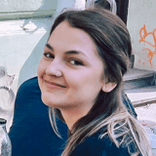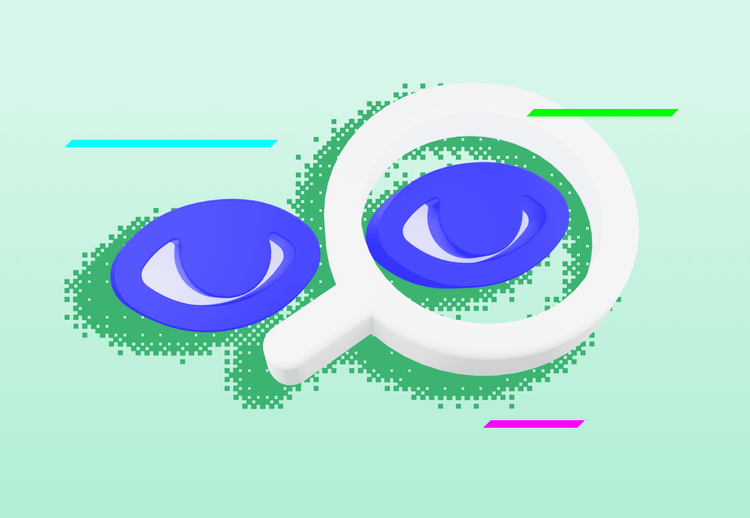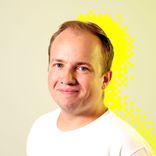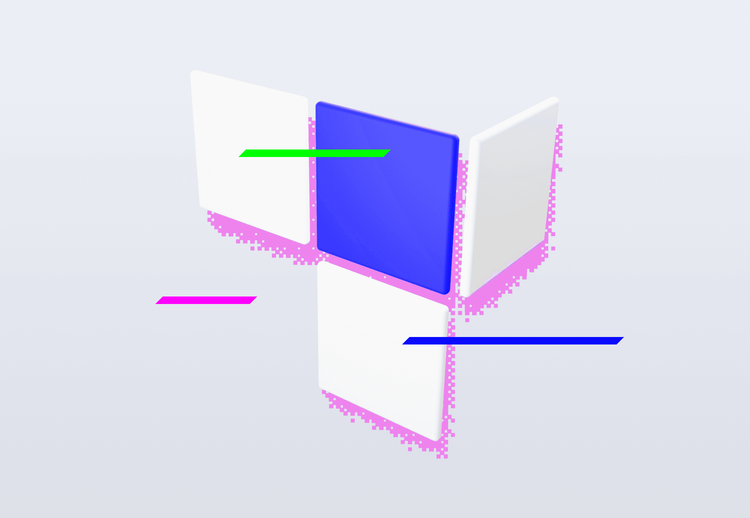Marek Přibáň: Project Management Is No Joke, but Even So We Have a Lot of Fun

Interview not only about projects
Marek Přibáň is the team leader of project managers. Apart from his team, he is taking care of all the projects being on their way timely, using reasonable amount of resources and most importantly in Ackee quality. In this interview, he let us peek behind the curtain of our biggest projects and he described how agile development works also from the point of view of a client.
You have been working in Ackee for more than seven years. How did the job of project manager change over this period of time?
When I was starting out, most of the projects were done based on a contract for work and the delivery of the product was for a fixed price, there were change requests being figured out and most of it was done through a waterfall approach where the individual parts were coming one after another and the previous parts always needed to be agreed upon in advance. Now it is more moving towards development being done on the bases of a general contract about service provision and iterative development.
So it is mostly about an agile approach to app development?
Agile development and everything around it has been going on for a long time. The change is more about clients considering this as well. It is no longer that we bring it to the table that we would like to develop a product in the agile mode because the requirements will likely keep changing and the product will be delivered gradually and improved based on user feedback - a similar approach is already adopted at the client side. They are willing to use the agile way of work even though it often does not work in the way that an MVP is released. The requirements of the client for a minimum product which would have a value are often too high. That does not mean that we would release new versions from the early stages every 14 days and gradually test them on users. At the beginning we create a product that has a lot of functionalities and we release it amongst the people and start modifying it in regular intervals.
How many projects do you have behind you?
It must be lower tens of projects. When I count the smaller stuff as well, it is about 33.
Is there some amongst them that would be a proper challenge?
Definitely Tapito, because it was one of the first bigger projects that we started doing in Ackee. Within the six months of doing an MVP with an Android application; there were at least six backend microservices, administration for the client… And that was also the first project where we dealt with machine learning. We created recommending articles to users based on what they read. But we added a lot of things apart from their own bubble, so that the user does not get stuck reading the same thing over and over. Already in the introductory phase it took thousands of hours which gradually became tens of thousands of hours. After that it moved to continuous development and support, which made it a project that occupied me for a long time. And by these bigger things starting to come in that take a lot of time, their total number started going down.
How many projects did you lead at the same time?
Probably nine. It was not nine very active projects, there were obviously such as well that require support and we work on them about 2-3 times per month. But also such a setup takes away focus and shatters the work time, so it was pretty difficult. Now the number is going down and I am again on reasonable numbers.
Are you responsible for all projects as a team leader in Ackee?
I am not responsible for all of them, it is more about trying to create conditions so that everybody has the possibility to function well on their projects. That means that I discuss with them how we can influence when somebody feels overloaded - whether to move the projects to other people, temporarily help them with some project or recruit somebody new to the team. I take care that we can handle all the projects and that we can leave on time. It is more about being responsible for the team.
Apart from that, I create such an atmosphere so that they know that when there is an issue they can come to me. But on the other hand, I do not get involved in the projects actively unless somebody asks me to. It is about me finding out about a possible issue so that we can resolve it together.
Who determines how the project will be led?
We try to give people freedom in how to lead the project. We have several different models that we can work with within development and each project needs something a little different. It is not strictly given that we lead all projects the same - that does not make sense. It would mean that the projects will suffer. That is why we modify it based on the client and project so that we know that it works the best it possibly can.
How does the assigning of people to projects work?
At the beginning, the choice comes from the capacity of the person. After that I consider experience with similar projects and technological difficulty. And obviously I also try to take into consideration the wishes of people and we try to accommodate them. At the same time I try to make sure that they do not have all projects from one field. It is great when they can give advice to other project managers based on their experience, but we do not want a person who is an expert on fintech to have all of the fintech projects - that can easily start to get boring. I was declared an expert on logistics, because I worked on HOPI, but that was really my only logistics project. :D
The work of a project manager carries a lot of responsibility. Do you have any tips on how to prevent possible problems?
Not to neglect communication. Within the team as well as with the client. That is why it is essential to give them the most realistic picture of where the project is as possible. In case there is a glitch, it is important to explain why it happened and how to avoid it for the future.
When it comes to the responsibility, our projects are primarily led by a project manager, but there is always a relationship with the client at the management level - i.e. Martin, Dominik, Pepa. One of them is basically a garant of the project and we as project managers regularly report to them the current status. At the same time the client can contact them directly. Every time there is some form of communication, so that we all know that everything is fine.
So you communicate directly on three levels?
Exactly. For the bigger projects such as FlashSport and FlashNews, we typically communicate also with the project manager on the other side or at the level of directors or senior management of that company. That is for example the setup we have with Livesport, where the project managers communicate with their product owners and at the same time, I have a feedback call about once a month with their head of product and other clients regarding the operation of the running of development, long-term goals, relationships and similar things that the products are supposed to fulfill because the development is already taking place for several years. At the same time, our management is in direct communication with the management of Livesport.
How much do you get involved in the process of app development in terms of their functionality?
One of the first roles that the project manager is responsible for is product owner proxy or internal product owner of this team. That means that together with the client, we try to define how the product should behave and why it should not have what the client is asking. We try to explain to them that it is necessary to evaluate the product based on the target group of users of the application, not the feelings of the client. Because most of them are not creating the app tailored to themselves.
And what about the other roles?
The second role of the project manager is obviously arranging development and checking deadlines. And there is one more thing. Given the fact that we develop these big long-term projects using agile, we also function as scrum masters. We try to observe the team and point out things that could work differently and improve the process of development of the product. Whether these are big things such as adding a new step to the iteration or smaller things - such as making individual parts of these iterations such as the retrospective within the sprint more enjoyable. We do not just handle what does (not) work well, but also the form of how we solve that. For that we started using among others also the tool Parabol. When you develop a product for a year and a half, the process changes at least a little bit and every change or impulse brings something good.
You mentioned Scrum as well as other trends that I always ask about - are there some current trends in terms of project management?
I think it is more about better tools for working with data. Typically you have tools where you manage what work needs to be done and how much time it takes - we use Redmine for this. But there are also many other tools such as Jira, Asana etc. You also have invoices somewhere and money that you are getting for the projects, at the same time you can have other expenses that need to be taken into consideration. The ability to integrate all this and use these tools to get answers for financial questions - that is the topic that we deal with right now. Business intelligence over projects and the company. Knowing the most about the measures of the project that you deliver. Everything is connected and that is something that we always try to improve.
How do you perceive leading teams long distance now after a year of mostly working from home office?
I perceive it more or less the same. It is obviously a shame that we cannot meet in higher numbers. Sometimes a couple of us meet after testing, but that is too little and it is not ideal. I think it is more difficult to create personal relationships with new people coming into Ackee. That is why we try to encourage each other and we use online tools to the fullest so we organize online and offline Ackee actions as much as possible.
What do you consider to be great about working as a project manager in Ackee?
Certainly that you learn a lot of new things. Even though it might seem that the projects are always the same, there is always another client on the other side. The course of the project is always different. We have a good experience with having two project managers working on the same project. That is something that we started doing with the big projects such as FlashSport and FlashNews. We are also trying other options of how they can work together, divide responsibilities and type of work. So a new hire has the possibility to learn exactly from these people that have a lot of projects behind them and a lot of experience. Whether it is deep knowledge of agile development, technological aspects of these projects etc. There are many possibilities and I think that it is very interesting and attractive.
As a project manager, you have different daily meetings, statuses or similar events, but also a free hand in managing your time. Do you have a dedicated time for undisturbed work?
I don't really have that and I am not sure if that is the right way. :D In Ackee, we introduced no meeting day Thursday, but even so I had a couple meetings today already and still some ahead of me. :D So this does not work for me, but I am trying to plan tasks that will take me more time and require more focus. It does not always work out, but I try to distribute meetings within the week so that I have time between them to be able to get ready. You want to have the freshest information possible for the status, so you don’t prepare days in advance. But at the same time it is necessary to expect that somebody might call because you are the contact person on the project for support and there is some reaction time there. At the same time, there are emails that I have to monitor, at least to know whether it can(not) wait. So I don’t plan so many things in order to have time for these ad hoc things that cannot wait and I cannot influence when in what amount they will arrive.
And the last question – what do you do when you are not leading projects?
My response for this always was that I enjoy sports, but lately I talk about it more than I do it, so I try to not even talk about it anymore. :D Nevertheless, that is something that I enjoy very much. I also like motorcycles and generally things that do not need a lot of thinking. When there is time, I like to chop wood. :D I like to do things that are physically demanding when I am out of work and not mentally. And the motorcycle is somewhere in the middle, depending on how you ride it. :D





